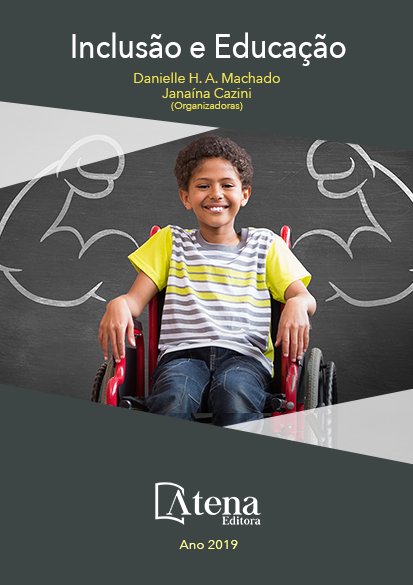
UMA HISTÓRIA DE (RE)SIGNIFICAÇÃO DE UM ADOLESCENTE EM SITUAÇÃO DE RUA.
O presente artigo tem como objetivo
compreender como se dá o processo de vivência
da adolescência, de um “menor de rua”, em um
contexto de ressignificação para um sujeito de
direitos. Para tanto, Inicialmente, realizamos
uma pesquisa bibliográfica em que, analisando
o texto de Calil (2003), elencamos algumas
contribuições do processo de Colonização no
Brasil que influenciaram a situação atual de
crianças e adolescentes em situação de rua e
o Estatuto da Criança e do Adolescente – ECA-
(1990) para atestar o direito desses sujeitos.
Em seguida, foi realizado um estudo de caso
com um adolescente da cidade de Campina
grande -PB, que vive em situação de risco de
rua. Buscamos compreender, através do estudo
de caso, a construção da subjetividade desse
adolescente, identificar as estruturas de (re)
significação e seus conteúdos não conscientes
que constituem suas diferentes configurações
subjetivas. Por fim percebemos que, apesar
da existência do ECA, ainda tem muito a ser
feito, pois é visível a quantidade de crianças
e adolescentes que vivem em situação de rua
sem ter seus direitos básicos garantidos, como
por exemplo alimentação, moradia, saúde e
educação.
UMA HISTÓRIA DE (RE)SIGNIFICAÇÃO DE UM ADOLESCENTE EM SITUAÇÃO DE RUA.
-
DOI: 10.22533/at.ed.29219150122
-
Palavras-chave: Adolescência; Significação; Ressignificação; Subjetividade; Situação de rua.
-
Keywords: Adolescents; Signification; Re-signification; Subjectivity; Living on the streets.
-
Abstract:
This article has as its objective
create understanding of the process by which
an adolescent minor living on the streets can,
through a process of resignification, exercise
his/her right of citizenship under the law. To
this end, initially, we researched the work of Calil
(2003), listing some of the contributions of the
colonization of Brazil which have had a bearing on
the current situation of children and adolescents
living on the streets; and finally, the bearing of the
legal statute, called ECA, passed by congress in
1990, to confirm the legal right of these individuals
in our society. Following this textual research, a
case study was done with a teenager living of the
streets of the city of Campina Grande, Paraiba, as
a vagrant. We sought to understand, during the
case study, the construct of the subjectivity of this
person, to identify the structures of re-signification and their unconscious contents which
form the subjective configurations of this young person’s being. In the end, we realized
that, in spite of the existence of the ECA as law, there is much yet to be done, for there
are many children and adolescents living on the streets and at risk because their rights to
sustenance, shelter, health, and education under the law are not their reality.
-
Número de páginas: 15
- Meiryllianne Suzy Cruz de Azevedo


